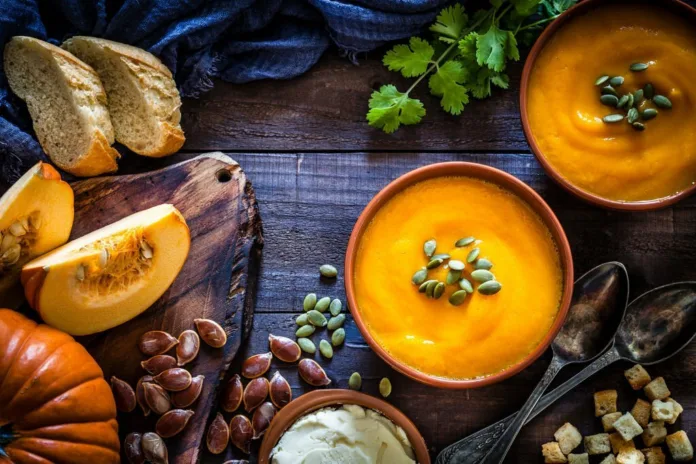Pumpkins are a fall favorite for many people, but they are more than just a delicious decoration. Pumpkins are also a nutritional powerhouse, packed with vitamins, minerals, and antioxidants.
Here are some of the key nutrients found in pumpkins:
Vitamin A: Pumpkins are a rich source of beta-carotene, which is converted to vitamin A in the body. Vitamin A is essential for vision, immune function, and cell growth.
Vitamin C: Pumpkins are a good source of vitamin C, an antioxidant that helps to protect the body from damage. Vitamin C is also important for wound healing and iron absorption.
Potassium: Pumpkins are a good source of potassium, a mineral that is important for blood pressure regulation and muscle function.
Fiber: Pumpkins are a good source of fiber, which helps to keep the digestive system healthy and can also help to lower cholesterol levels.
Antioxidants: Pumpkins are packed with antioxidants, such as beta-carotene, vitamin C, and lutein. Antioxidants help to protect the body from damage caused by free radicals.
In addition to these key nutrients, pumpkins also contain a variety of other vitamins and minerals, including magnesium, manganese, copper, iron, and folate.
Benefits of eating pumpkin
Eating pumpkin has a number of health benefits, including:
Improved vision: The beta-carotene in pumpkins is converted to vitamin A, which is essential for good vision.
Boosted immune system: The vitamin C and antioxidants in pumpkins can help to boost the immune system and protect the body from infection.
Lowered cholesterol levels: The fiber in pumpkins can help to lower cholesterol levels.
Improved digestive health: The fiber in pumpkins can help to keep the digestive system healthy and regular.
Reduced risk of chronic diseases: The antioxidants in pumpkins can help to protect against chronic diseases such as heart disease, stroke, and cancer.

How to incorporate pumpkin into your diet
There are many ways to incorporate pumpkin into your diet. Here are a few ideas:
Add pumpkin puree to your oatmeal, yogurt, or smoothie.
Roast pumpkin cubes and add them to your salad or soup.
Make a pumpkin pie or muffin.
Add pumpkin puree to your bread dough or muffin batter.
Make a pumpkin curry or soup.
Roast pumpkin seeds for a healthy snack.
Pumpkin is a versatile and nutritious food that can be enjoyed in many different ways. By incorporating pumpkin into your diet, you can reap the many health benefits that it has to offer.
Conclusion
Pumpkins are a nutritional powerhouse, packed with vitamins, minerals, and antioxidants. Eating pumpkin has a number of health benefits, including improved vision, boosted immune system, lowered cholesterol levels, improved digestive health, and reduced risk of chronic diseases. There are many ways to incorporate pumpkin into your diet, so start experimenting and find your favorite ways to enjoy this fall favorite.




